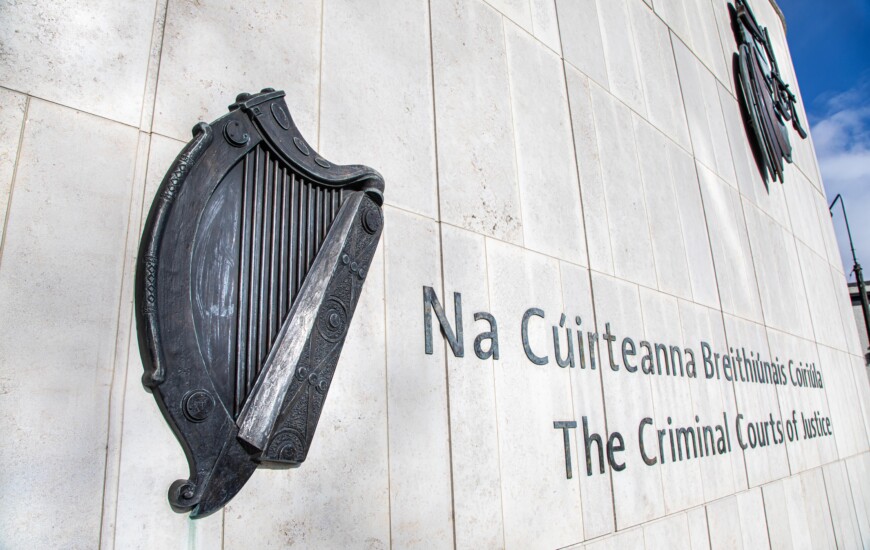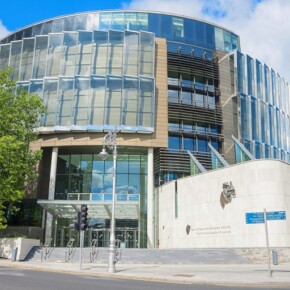Suspended sentence for driver who killed cyclist
Dublin People 27 Nov 2025
By Sonya McLean and Niamh O’Donoghue
A woman who killed a cyclist after her car crossed onto the other side of the road has been given a suspended sentence.
Marcella Duffy (62) of Clairville Lodge, Streamstown Lane, Malahide, Dublin, pleaded guilty at Dublin Circuit Criminal Court to dangerous driving causing the death of John Walsh on Malahide Road, Dublin on February 18, 2024.
Mr Walsh was out for a Sunday morning cycle on the Malahide Road in Kinsealy, when Duffy’s car crossed the road and hit him. He later died in hospital.
Mr Walsh, who was described by his wife in a victim impact statement as an extraordinary, loving, funny, kind man with a mischievous grin and a glint in his eye, was a father to three young boys and an avid cyclist.
“There are now three very young boys facing essentially their entire lives without their adoring father. John wanted them so much. He wanted to be a present, active, loving dad in every moment of their lives. He was devoted to them,” Ms Walsh said in her statement which she read to the court.
“It feels grossly inadequate to try, in a few pages, to describe who John was: the husband he was to me, the father he was to our little boys, and the scale of devastation caused by his killing. No words can do justice to his life or to the grief of my three young sons and I,” she continued.
“One small example — just a single drop in the ocean of loss — is this: the night that should have been John’s first evening as a Scout leader, his three little boys instead stood around his coffin and said goodbye to their daddy for the very last time.”
Ms Walsh concluded her statement by saying: “We are left trying to piece together a life that will forever be missing the man who should still be at the centre of it”.
Judge Martin Nolan said he could not find any aggravating factors in the case and gave a fully suspended sentence. He said the court must look for intentional factors and to determine the level of culpability.
“I cannot identify any such factor in this case,” said the judge. The judge noted Duffy was driving at 62kmph which he noted “was somewhat over the limit”. However, the judge noted the speed limit had just changed from a 60kmph to 50kmph zone.
“It seems to me for whatever reason she lost control and allowed her car to stray,” said the judge.
“Her culpability in relation to dangerous driving is on the lower side,” he added.
The judge noted Mr Walsh was a young man with three children and all of his immediate and extended family were in trauma over what had occurred. The judge noted Mr Walsh’s wife will have to bring up three children on her own, albeit with help of extended family.
Judge Nolan said Mr Walsh was an “accomplished man”, the “loss is devastating” and said the court sympathised with his family.
“He is dead and I have to deal with the case arising from this,” said Judge Nolan.
“A custodial term wouldn’t be appropriate,” said the judge.
He noted Duffy’s early plea, co-operation, lack of previous convictions and said there was an “unlikelihood of Marcella Duffy reoffending.”
He imposed a two-and-a-half year sentence and suspended it in its entirety and disqualified her from driving for a period of six years.
Detective Garda Stephen Flynn gave evidence that Duffy was driving a Skoda travelling along the Malahide Road and Mr Walsh was travelling in a southerly direction. Duffy was travelling towards Malahide and her vehicle travelled onto the wrong side of road causing a head-on collision.
The impact propelled Mr Walsh over her vehicle and dashcam footage captured the incident, the court was told.
A number of people assisted at the scene including an off-duty healthcare worker. He had fallen on his side in the recovery position but had very serious head injuries.
Other members of the public covered him with warm clothing and Mr Walsh was treated at the scene by paramedics and brought to hospital. Treating doctors determined surgical intervention was of no use and he passed away. He suffered a fracture to his spine and the cause of death was pulmonary oedema from a traumatic head injury.
Road conditions on the single carriageway were dry, visibility was good and traffic was light, the court heard. There was a 50 kmph speed limit and the road was well sign posted. Footage showed Duffy was travelling 62 to 63 kmph as determined from frames of CCTV footage of the incident.
The garda told the court the car and the bicycle were sent for examination and no fault could be found with them. The bike had lights and were operable, the court was told. Mr Walsh’s wife told gardai her husband was a very experienced cyclist.
Duffy remained at the scene until gardai arrived. She told gardai she could not remember what happened.
A blood sample was taken from Duffy and alcohol was not a factor and she was not using a mobile phone at the time. She spent the previous night with her son in hospital and left there at 9am.
Eoin Lawlor SC, defending, told the court Duffy had driven all her adult life and “considers herself a careful driver”. She does not drive at all now and her car has not yet been returned to her since the accident. She has no previous convictions and no penalty points.
Mr Lawlor said his client had no recollection of the events and it could be inferred that she suffered from loss of attention due to tiredness having just left hospital with her son. “A night in hospital is a tiring event”, said Mr Lawlor.
Counsel said there had “not been a day where she has not keenly felt the consequences” of the accident and her “plea was indicative of her remorse.”
His client has offered to meet with any member of the Walsh family in due course, Mr Lawlor said.
Duffy is a mother-of three and her wife was present in court for the sentencing hearing.
Mr Lawlor said Duffy was originally from Hackettstown, Co. Carlow and initially worked as a secretary and later with the homeless. Having moved to London, she worked in a hospice in the early stages of the AIDS epidemic, particularly with young Irish people who caught the virus and could not return home because of the stigma.
She went back to college later in life to study and did a masters’ degree on working with people with AIDS before doing a PHD in healthcare.
She later worked in Dublin City University as well as prisons. Her “morality and her drive for those less fortunate than her” and “social justice for the vulnerable” made it “difficult for her to deal with the devastating injustice she has caused”, counsel said.











